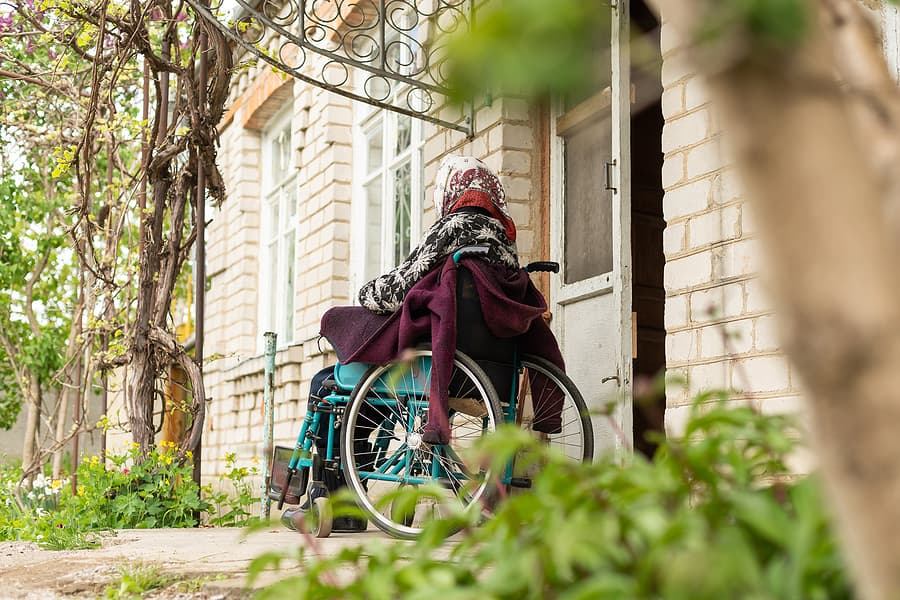A deliberate action that harms or threatens another person is abuse. When a nursing home resident is a target, we can investigate the following actions:
- Punching
- Slapping
- Kicking
- Yelling, swearing, insulting
- Handling a resident roughly
- The unauthorized use of restraints
- Pulling too hard on a resident
- Throwing something
- Hitting
- Biting
- Pinching
- Withholding food or water
- Non-consensual sexual contact
- Threatening violence
Neglect, while also a form of abuse, can be unintentional. When a resident does not receive the necessary care, such as clean clothing, food, water, medication, or personal hygiene, the nursing home neglects and abuses them. Whether neglect results from apathy, lack of training, insufficient staffing, or a willful, deliberate act, harming a nursing home resident is unacceptable.
Some specific examples of neglect include:
- Being deprived of basic needs, such as a climate-controlled room, clean clothing and bedding, sufficient food, or required medical care
- Social isolation
- Ignoring a request for help
- Lack of supervision
- Leaving a mobility-challenged resident in their room for extended periods
- Ignoring medical issues such as bedsores, infection, chills, or fever
- Failing to assess a resident after a fall
- Medication mismanagement
- Not providing oral/dental care
- Failure to follow established safety precautions
Other examples of abuse include sexual assault, misuse of a resident’s personal property or finances, forgery, theft, and coercing a resident to sign documents, contracts, or a will.
Common Nursing Home Injuries
Unfortunately, these fragile and vulnerable individuals may sustain fractures, pressure ulcers, lacerations, infections, and side effects from medication errors. Sadly, death may also result from such horrendous treatment. When these injuries are the result of abuse or neglect, you may file a lawsuit.
Why is Nursing Home Abuse Underreported?
Why do residents fail to speak up about abuse?
The National Center on Elder Abuse explains that 24 cases of abuse go unreported for every one reported case. Some victims of abuse have physical or cognitive limitations that prevent them from reporting abuse. Other nursing home residents may be hesitant to speak up about abuse out of fear of retaliation, shame and embarrassment, and fear of losing the care they need.
Why do nursing home staff members ignore signs of abuse?
Sometimes those best positioned to shed light on suspected abuse, nursing home staff members, deliberately fail to do so out of:
- Fear of losing their job
- Complacency
- Insufficient training
- Perceived lack of administrative support
Why do family members fail to report resident abuse?
Family members may not report abuse due to:
- Fear of being forced to move the resident
- Having no other options for placement
- Failure to recognize the signs of abuse
- Being unaware of how to report and document abuse
The personal injury attorneys at Gruel Mills know how to address nursing home abuse; we have the resources and resolve to handle these complicated and challenging cases.
You Can Hold a Nursing Home Liable for Resident Abuse
A nursing home is responsible for the health and safety of every resident.
Victims of nursing home abuse can recover financial compensation for harm from:
- A lack of sufficient professional staff
- A lack of appropriate support staff
- Poor hiring practices
- Failure to thoroughly investigate staff
- A lack of training and supervision
- Another resident
- A visitor to the facility
- An unsafe environment
- Broken equipment
- Lack of important documentation
- Failure to accommodate high-risk residents
- Fraud
What Damages Can I Recover?
A plaintiff in a nursing home abuse lawsuit can seek compensatory damages for:
- The resident’s past and future medical expenses
- Pain and suffering, emotional distress
- Psychological injuries
- Disfigurement
- The cost of a caregiver
- Physical rehabilitation
- Loss of the enjoyment of life
- Shortened life expectancy
- Wrongful death
Statute of Limitations for Filing a Nursing Home Abuse Claim
Statistically, most nursing home abuse cases in Michigan will resolve through an insurance carrier settlement. A settlement can be reached before or after the case is formally filed, so it is important to follow the legal protocols and specific time constraints for taking legal action. Under Michigan law, a patient injured due to the negligence of a nursing home or nursing home staff member has two (2) years from the date of the abuse or neglect to file a lawsuit.
Family and Friends Can Help
Concerned friends and family are instrumental in helping to keep our senior citizens and other vulnerable populations safe and well cared for. Trust your gut instinct. If something does not feel right, it may not be. When visiting the facility, look for signs of:
Physical abuse
- Fractures
- Unexplained bruising
- Facial cuts or broken eyeglasses
- Fearfulness
Emotional abuse
- Heightened anxiety
- Behavioral changes
- Social isolation
- Repetitive motions
- Refusing to take medication
Financial abuse
- Unexplained credit card expenditures
- Reports from the resident of a missing wallet or checkbook
- Receipts for unknown subscriptions or contributions
- Signs of hoarding
Signs of Neglect
- Unclean clothing
- Lack of personal hygiene
- Unexplained weight loss
- Bedsores
- Dehydration
- Unclean room
- Unexpected infection
- Frequent falls
Report It and Record It
Staffing shortages are common in nursing homes. The Centers for Medicare and Medicaid Services have expected nursing staffing levels based on resident acuity, but government studies estimate that 75 percent of nursing homes never meet those prescribed staffing levels. These shortages leave healthcare workers overburdened and may result in dangerous gaps in necessary resident care. Without enough workers per shift, meals may come late, staff may not provide medications on time, and or essential medical tasks may fall by the wayside. Government regulations should ensure sufficient skilled care in American nursing homes, but they do not. If you have a concern, report it to the nursing home’s administration.
Adequate professional care can reduce:
- The incidence of bedsores
- Inappropriate use of restraints
- Dehydration
- Overuse of antipsychotics
- Acquired infections
- Trips to the emergency room
- Mortality
While Medicare does not set a minimum resident-to-staff ratio, it does require the presence of a registered nurse for eight hours a day and a licensed nurse at all times. Medicare has an interactive website to allow concerned family members access to the current ratings for facilities in their area.
Speak up if you feel the nursing home violates your written agreement or is not meeting your expectations. Speak up if you witness any resident-on-resident abuse. Speak up if you feel there is a lack of security in the building.
How Our Nursing Home Abuse Attorneys Can Help
A family member is often the first line of defense for a resident in a nursing home. We understand it is hard to monitor a situation from afar. A nursing home may be the best place for your family member’s immediate needs, but you can be their voice if something is wrong.
The lawyers at Gruel Mills have decades of experience advocating for those who cannot speak for themselves. We stand ready to become a part of your support system. There are many obstacles to accountability for negligence and abuse, but we can help.
Without the assistance of an experienced lawyer, it can be challenging to establish nursing home abuse or neglect and to receive the compensation your family deserves. A nursing home may be quite skilled at hiding or covering up negligent practices; suspected staff members may deny culpability or claim the resident inflicted some of the injuries on themselves.
Without a doubt, the insurance carriers for the suspected defendants will make every effort to deny or devalue the claim. If you suspect abuse, take immediate action and call us for your no-cost, no-obligation consultation.
Our nursing home abuse attorneys at Gruel Mills are committed to protecting our communities’ elders and other vulnerable populations. We know Michigan’s nursing home laws and have decades of experience helping families like yours pursue financial compensation for the damages their loved ones have suffered.
Some things we may review during a discovery period include:
- Admission records
- The initial intake of patient history
- Medical records
- Medication logs
- Nurses notes
- Staff background check reports
- Any written correspondence between the family and the facility
- Photographs and text messages to or from the family concerning the resident
- Copies of the most recent state inspection and any investigations
We may interview any visitor(s) the resident has had regularly, and we ask to see the facility’s written policies and procedures for:
- Fall prevention
- Infection control
- Sepsis
- Wound care protocol
- Preventing pressure sores
When a nursing facility does not provide reasonable or acceptable skilled care, the lawyers at Gruel Mills know what questions to ask. We have access to a support system that can help establish when nursing homes don’t adhere to acceptable standards of care, and we have the drive and the dedication to do the job right. Reach out to a personal injury lawyer. Call us at (616) 235-5500 or contact us online to find out how we can help you and your loved one, hold the nursing home accountable, and protect other residents from the abuse or neglect you and your loved one suffered.
Grand Rapids Office Location
Comerica Building
99 Monroe Ave NW #800
Grand Rapids, MI 49503
Read client reviews on Google!

